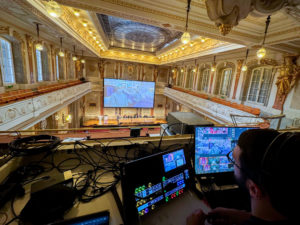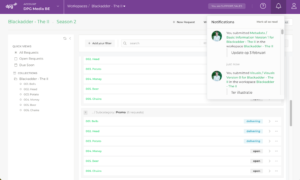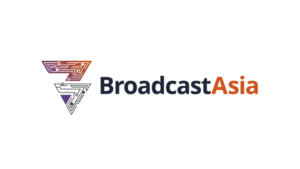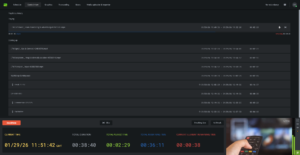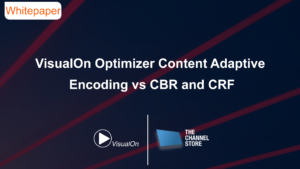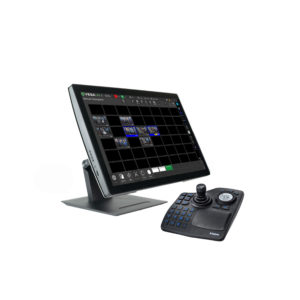Amagi – Revolutionizing live sports and events coverage with unified cloud workflows
Kalaivani Sivasankaran, Senior Director – Product Marketing, Amagi

In 2023, live broadcasts overwhelmingly topped the charts of the 100 most-viewed telecasts, with a clear preference for live sports, which claimed 56 of the highest rankings. Remarkably, the coverage of Oscars and the Grammys stood out as the leading entertainment broadcasts. The historical interest in live programming can be attributed to its unique offering of immediacy and the opportunity for real-time engagement. This format excels in delivering the excitement of witnessing events unfold in the moment, creating a compelling sense of participation and community among viewers. So it is no surprise that the live streaming sector is expected to experience a significant boom, with projections estimating its value to reach $3.21 billion by 2027.
In recent years, digital channels have risen to match cable TV’s audience share at 39%, signifying the growing role of direct-to-consumer (D2C) streaming apps in delivering live events. Innovations like Sky Sports Germany’s vertical streaming for TikTok and Disney+ Hotstar’s immersive live cricket experience showcase the shift towards engaging digital broadcasts. This trend emphasizes the need for media companies to integrate digital strategies with traditional live broadcasting to attract and retain viewers, especially younger audiences who prefer consuming content across various digital platforms.

Given the needs of modern workflows highlighted, the limitations of traditional fixed hardware infrastructure become apparent. In response, cloud-based workflows emerge as the pivotal solution. The shift to cloud technology enables events to be streamed globally with greater flexibility and scalability, transforming how live events are produced, distributed, and consumed to meet the demands of digital platforms.
Cloud workflows & automation for modern live sports coverage
Live events vs. ROI
Traditional broadcasters face significant hurdles in covering live events. Setting up dedicated production workflows and studios is costly and cuts into profits. Additionally, operational limitations make it challenging to cover multiple events at once, especially impacting Tier 2 or Tier 3 events like local sports, community events, regional award shows, concerts and niche conferences.
Expensive on-ground production costs, particularly for tier-2 and tier-3 events, often outweigh the revenue generated, making deploying costly crews and equipment impractical. On-demand cloud production offers a promising solution for efficient event coverage without extensive on-site infrastructure. Furthermore, the flexibility of having producers, directors, and operators remotely anywhere in the world enables access to the best talent available or the most cost-effective options, ultimately enhancing the overall quality of the production while optimizing resource utilization.
Support for complex live workflows
In sports or news broadcasting, several key factors are paramount to ensure a seamless and high-quality experience and it is essential for a cloud-based live system to encompass these capabilities. These include maintaining an operator experience similar to on-premises setups, ensuring glass-to-glass low latency for real-time transmission, implementing multi-region redundancy to guarantee high availability and minimize downtime, and offering flexibility to integrate external workflows such as real time graphics and live captioning. Moreover, the ability to deliver high video quality, including HDR 4K and Dolby Atmos support for premium events, is crucial for providing an immersive viewing experience.
Additionally, cloud-based solutions should offer the capability to quickly spin up and spin down resources for specific events without the need for a fixed infrastructure while also enabling the migration of all hardware infrastructure to the cloud, including switchers, routers, multi-viewers, graphics systems, captioning systems, recording systems, playback systems, and statmux.
Live to VOD
Other key elements that help amplify the overall viewing experience include automation techniques such as digital playlisting and live-to-VOD conversion as the live event progresses. These methods ensure continuous viewer engagement by enabling broadcasters to populate their schedules around the clock with relevant and captivating content. This adaptability allows broadcasters to produce varied live segments for both linear and on-demand channels, again maximizing revenue.
Efficient & Enhanced Operations
Cloud workflows significantly boost operational efficiency, slash costs, and elevate the live viewing experience further by automating critical tasks like content scheduling, distribution, and ad insertion. With automation ensuring smooth, error-free delivery, operators and staff can concentrate on strategic and creative priorities needed to elevate programming quality.

Cloud based AI/ML workflows facilitate the automatic generation of closed captions for live events breaking language barriers for a global audience. Additionally, automated insertion of graphical elements and interstitial content maintains a cohesive viewing experience and creates opportunities for personalized content delivery. By harnessing data-driven graphics and targeted advertising, organizations can deliver a more tailored viewing experience, ultimately enhancing viewer engagement and loyalty.
Powering innovative storytelling & powerful data analysis
The shift toward unified cloud workflows and automation isn’t just a passing trend – it’s essential if broadcasters want to thrive in today’s digital landscape. With traditional TV facing challenges and streaming platforms gaining dominance, adopting these workflows is crucial for efficient and cost-effective live sports and event coverage.
With access to advanced production tools and real-time analytics, broadcasters can deliver personalized content experiences that actually resonate with individual viewers. Whether it’s interactive graphics, multi-camera angles, or augmented reality overlays, cloud workflows empower broadcasters to push the boundaries of creativity and deliver unforgettable moments to audiences worldwide.
Media companies are realizing the benefits of cloud-based solutions, which enable automated content versioning for distribution across multiple platforms. They’re also leveraging these tools to tailor coverage to diverse audiences, maximizing their return on investment and digital reach.
